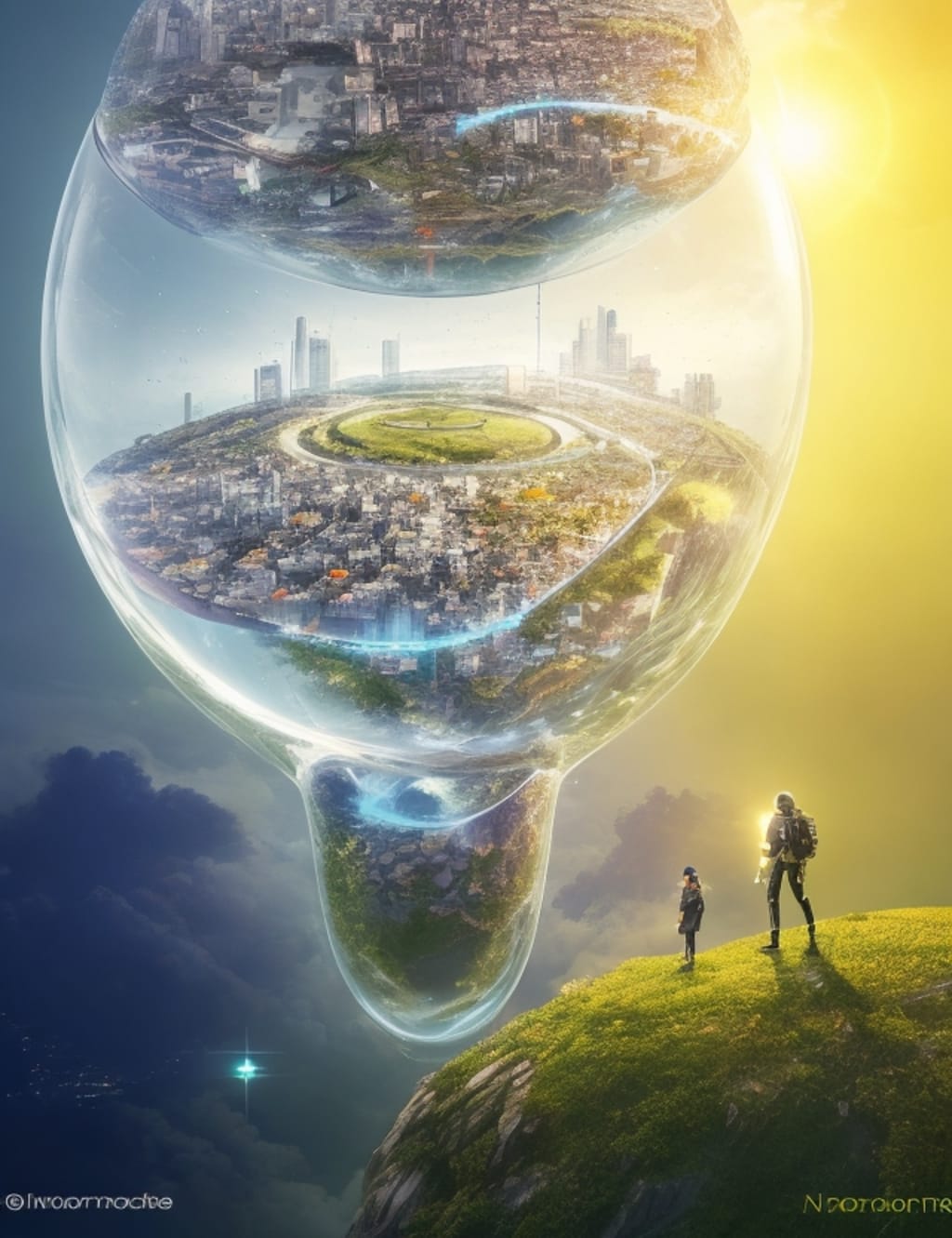Nanotechnology and the Future Lifestyle: Balancing Needs, Wants, and Sustainability
A Paradigm Shift in Addressing Essential Requirements and Responsible Consumption for a Technologically Advanced World

Introduction:
As the world hurtles into the future, our lifestyle choices and consumption patterns are undergoing a profound transformation. The pursuit of a sustainable and fulfilling life demands a careful balance between fulfilling our needs and managing our wants responsibly. In this pursuit, nanotechnology emerges as a game-changer, promising to revolutionize various aspects of our daily lives. By harnessing the power of nanotechnology, we have the potential to address our essential needs more efficiently while simultaneously reevaluating and curbing our wants to create a more sustainable future lifestyle.
Understanding Needs and Wants:
Needs and wants are two fundamental aspects that govern human behavior and lifestyle choices. Needs refer to the necessities essential for survival, well-being, and the fulfillment of basic human rights. These encompass primary requirements such as food, clean water, shelter, healthcare, education, and social interaction.
On the other hand, wants are desires beyond the essentials that are driven by culture, social conditioning, and individual preferences. These desires encompass a wide range of material and non-material aspirations, including luxury goods, entertainment, travel, and leisure activities.
The challenge lies in finding a harmonious balance between fulfilling our needs, which are crucial for a dignified life, and managing our wants responsibly to avoid excessive consumption and overexploitation of resources.
Nanotechnology's Potential Impact on Needs:
Nanotechnology holds immense potential to revolutionize how we address our essential needs, enhancing efficiency, sustainability, and accessibility in various domains.
Food and Agriculture:
Ensuring food security for a growing global population is a pressing concern. Nanotechnology can play a crucial role in addressing this challenge. Nanoscale sensors can monitor crop health, soil moisture, and nutrient levels, optimizing agricultural practices and reducing resource wastage. Nanoencapsulation of nutrients can also enhance food fortification, addressing malnutrition and improving public health.
Furthermore, nanotechnology can be employed to develop smart packaging materials that extend the shelf life of perishable foods, reducing food waste and enhancing food safety.
Water Purification:
Access to clean and safe drinking water is essential for human well-being. Nanotechnology offers innovative solutions for water purification and desalination. Nanomaterials like carbon nanotubes and graphene oxide can act as efficient water filters, removing contaminants and pathogens.
Nanotechnology-based water treatment systems could transform how we manage our water resources, making clean water more accessible and affordable to populations facing water scarcity.
Healthcare and Medicine:
In the field of healthcare, nanotechnology has already shown significant promise. Nanomedicine allows for targeted drug delivery, reducing side effects and increasing the efficacy of treatments. Nanoscale sensors can monitor vital signs and detect early signs of diseases, enabling proactive health management.
Furthermore, nanotechnology can revolutionize diagnostic imaging, improving early detection and precision in medical procedures. As nanotechnology continues to advance, personalized medicine could become a reality, tailoring treatments to an individual's unique genetic makeup and health needs.
Nanotechnology's Potential Impact on Wants:
While nanotechnology is poised to revolutionize how we address our essential needs, its influence on managing our wants is equally transformative. By fostering innovation and resource efficiency, nanotechnology can help redefine our approach to consumption and encourage responsible choices.
Energy-Efficient Electronics:
As consumers, we often desire the latest electronic gadgets and devices. Nanotechnology can enable the production of energy-efficient electronics, ensuring that our wants are met without significant strain on natural resources.
Nanoscale materials and components can reduce energy consumption in electronic devices, extending battery life and minimizing electronic waste. Additionally, nanotechnology can facilitate the development of flexible and lightweight electronics, making them more sustainable and environmentally friendly.
Sustainable Fashion and Textiles:
The fashion industry is notorious for its environmental impact and waste generation. Nanotechnology can revolutionize the production of textiles, making them more sustainable and durable.
Nanocoatings can impart water and stain resistance to fabrics, reducing the need for harmful chemical treatments. Nano-sized fibers and materials can enhance the strength and performance of textiles, leading to longer-lasting and eco-friendly garments.
Responsible Travel and Tourism:
The desire to explore new destinations and cultures is a common want for many individuals. Nanotechnology can contribute to responsible travel and tourism practices by enhancing transportation efficiency and reducing environmental impact.
Nanomaterials can be utilized to improve fuel efficiency in vehicles, airplanes, and ships, reducing carbon emissions and promoting sustainable travel. Additionally, nanotechnology can be applied to develop eco-friendly construction materials for hotels and resorts, fostering sustainable tourism practices.
Challenges and Ethical Considerations:
While nanotechnology promises numerous benefits for addressing both needs and wants, there are significant challenges and ethical considerations that must be addressed:
Environmental Impact:
As with any technology, nanotechnology's production and disposal can lead to environmental consequences. To ensure its sustainable implementation, efforts must be made to minimize its ecological footprint and adopt responsible waste management practices.
Equity and Access:
The widespread adoption of nanotechnology innovations should be equitable, ensuring that vulnerable communities and developing regions benefit from its advancements. Bridging the "nano-divide" is essential to prevent exacerbating existing socioeconomic disparities.
Privacy and Security:
Nanotechnology's integration with electronic devices and data collection raises concerns about privacy and data security. Safeguarding personal information from unauthorized access and misuse becomes crucial in a technologically advanced future.
Responsible Consumption:
As nanotechnology facilitates the fulfillment of wants, it is essential to promote responsible consumption habits. Encouraging conscious choices and awareness of the environmental impact of our desires is crucial to creating a sustainable future lifestyle.
Conclusion:
The future lifestyle change brought about by nanotechnology is poised to revolutionize how we address our needs and wants. By harnessing nanotechnology's potential, we can enhance the efficiency and sustainability of essential services like food, water, and healthcare while promoting responsible consumption and environmental stewardship.
As we navigate this transformative future, it is crucial to approach nanotechnology with ethical considerations and a commitment to inclusivity and sustainability. Embracing a balanced lifestyle that fulfills essential needs while managing wants responsibly will be essential to creating a future that is not only technologically advanced but also environmentally conscious and equitable for all.
About the Creator
Enjoyed the story? Support the Creator.
Subscribe for free to receive all their stories in your feed. You could also pledge your support or give them a one-off tip, letting them know you appreciate their work.





Comments
There are no comments for this story
Be the first to respond and start the conversation.